OS FATAIS
A duo show of Manuel Fonseca and Francisco Correia at Museu Alberto Sampaio, Guimarães Project Room.
2023
![]()
![]()
![]()
casca de uma tangerina III, 2023
Ceramics, 59x63x77 cm
![]()
Vase for a Rock, 2023
Polychrome ceramics
48x50x40 cm
untitled, 2023
Stoneware
5x34x58 cm
![]()
Casca de uma tangerina II, 2023
Ceramics, 59x63x27 cm
![]()
untitled, 2023
Polychrome stoneware, 4x51x63 cm
![]()
untitled, 2023
Polychrome stoneware, 3x76x55 cm
![]()
![]()
![]()
Cascos, 2023
Stoneware, 34,5x40x38 cm
Casca de uma tangerina I, 2023
Ceramics, 16x41x42 cm
![]()
![]()
![]() Tyred, 2023
Tyred, 2023
Ceramics, 26x26x13 cm
![]()
2023
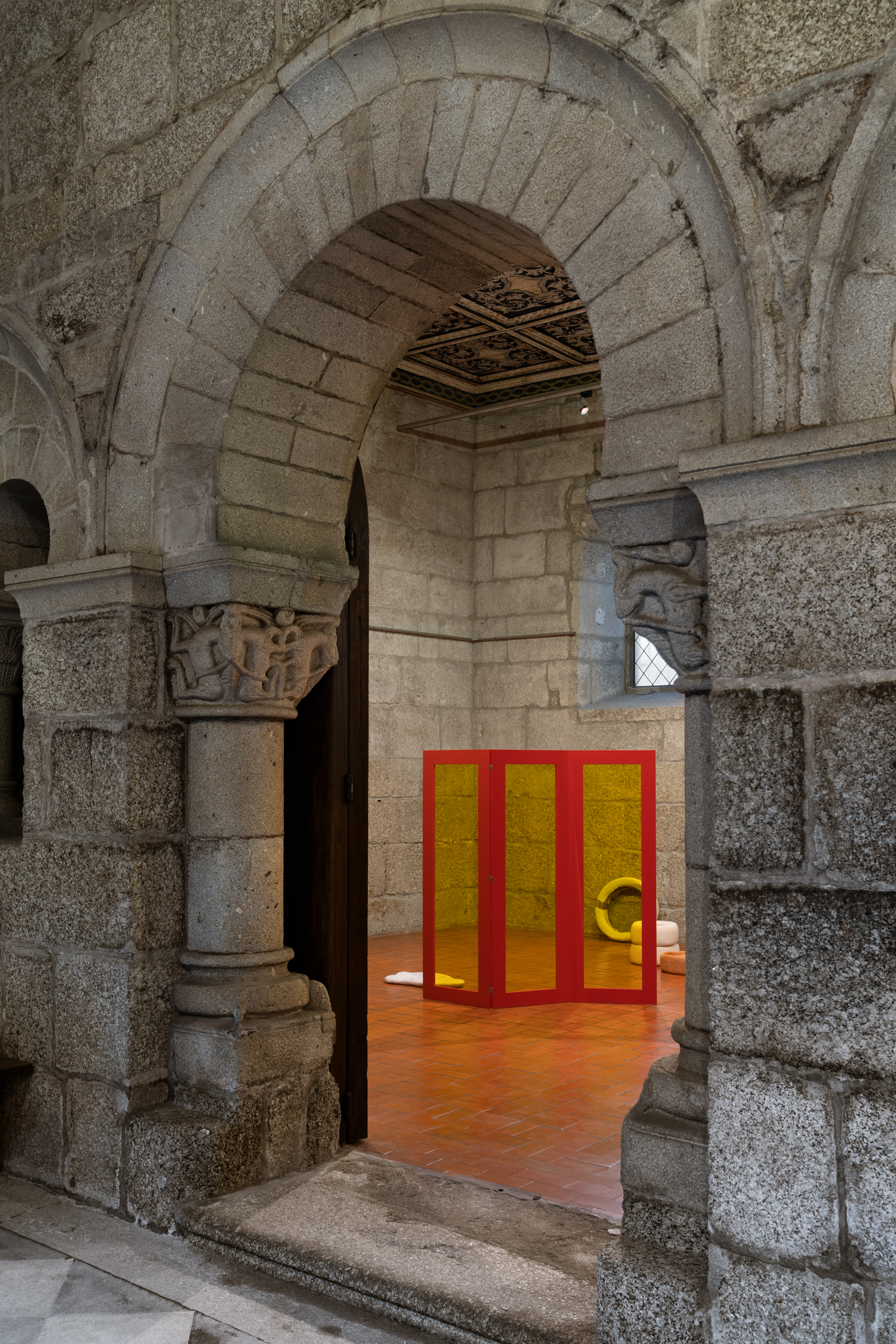
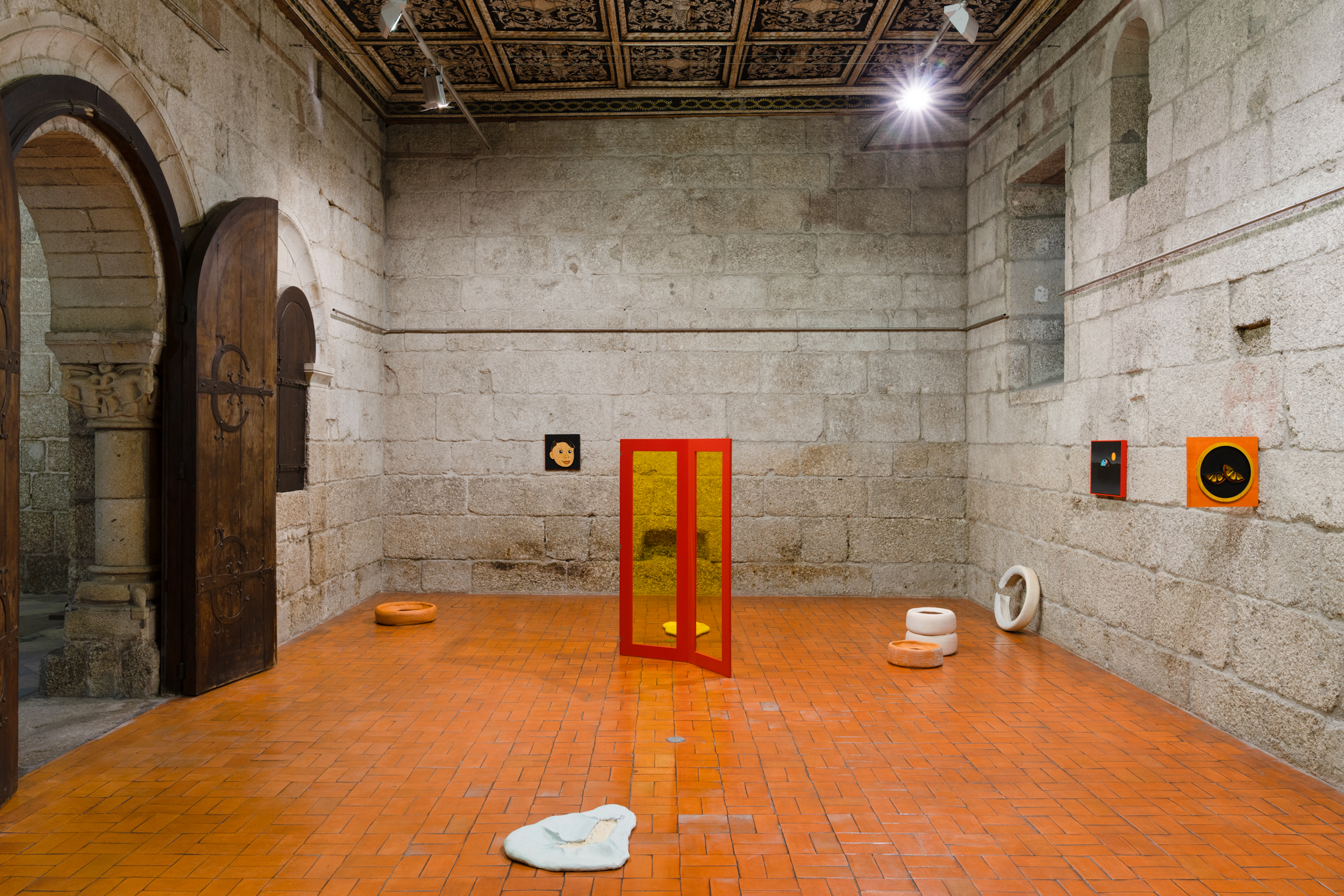
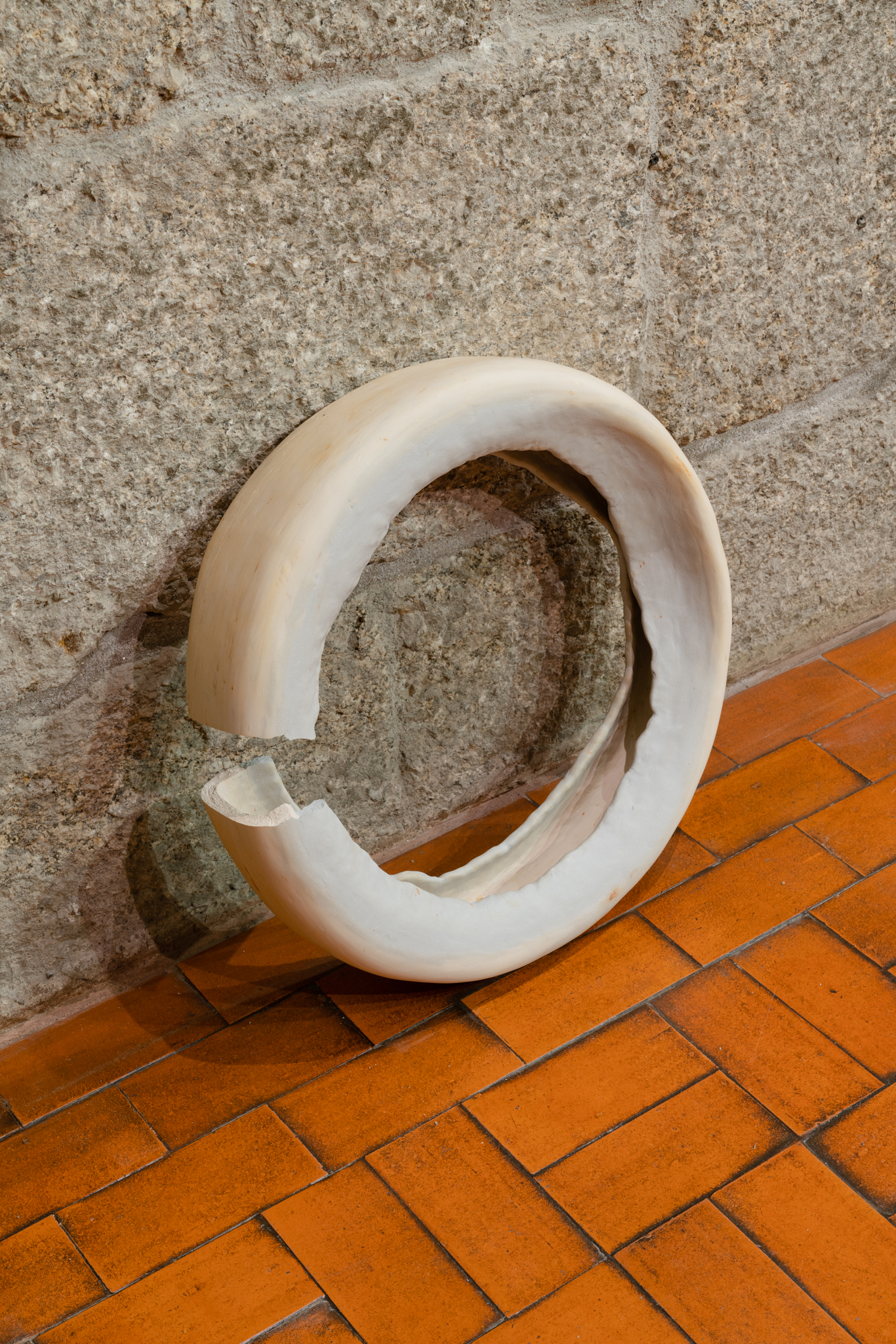
casca de uma tangerina III, 2023
Ceramics, 59x63x77 cm
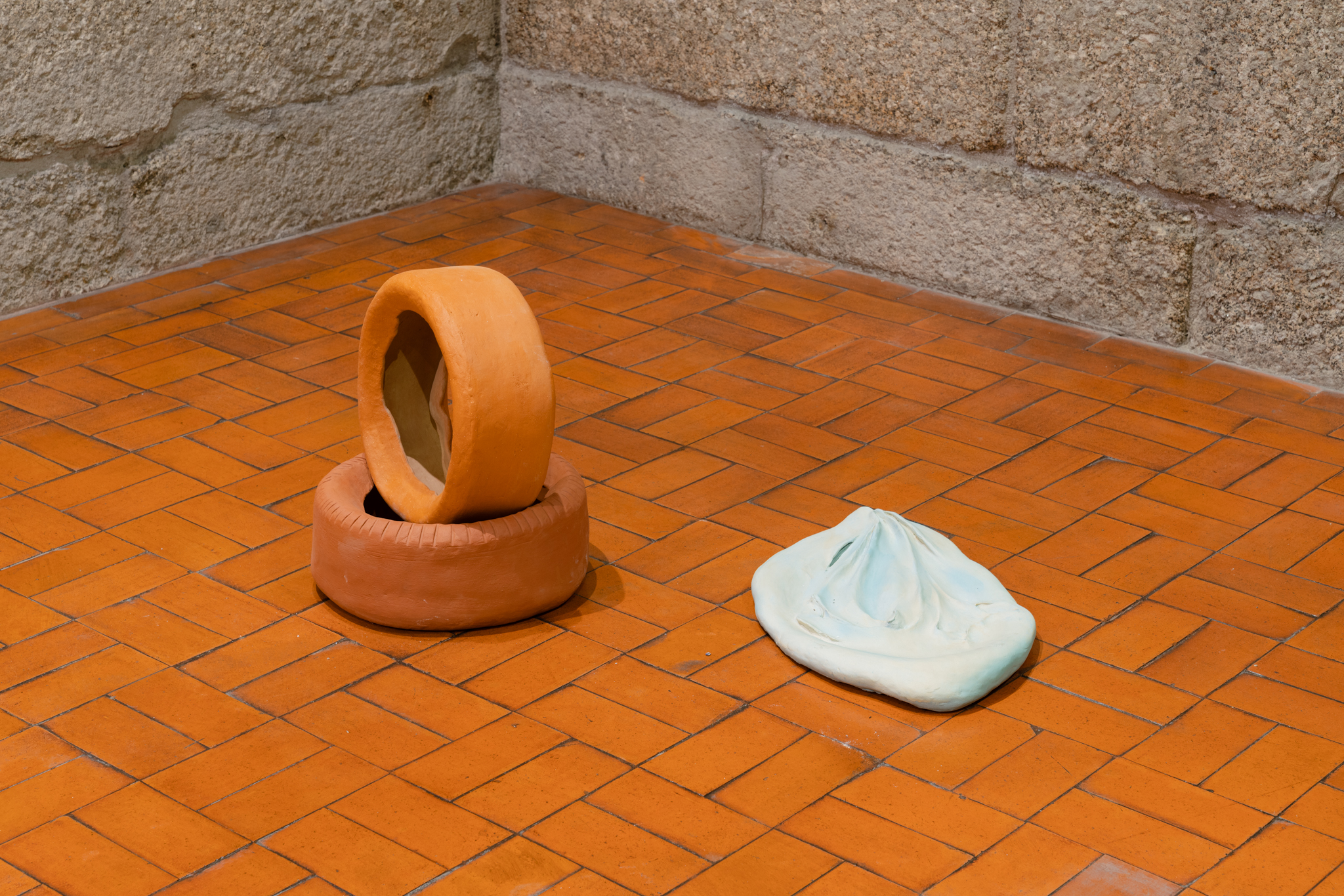
Vase for a Rock, 2023
Polychrome ceramics
48x50x40 cm
untitled, 2023
Stoneware
5x34x58 cm
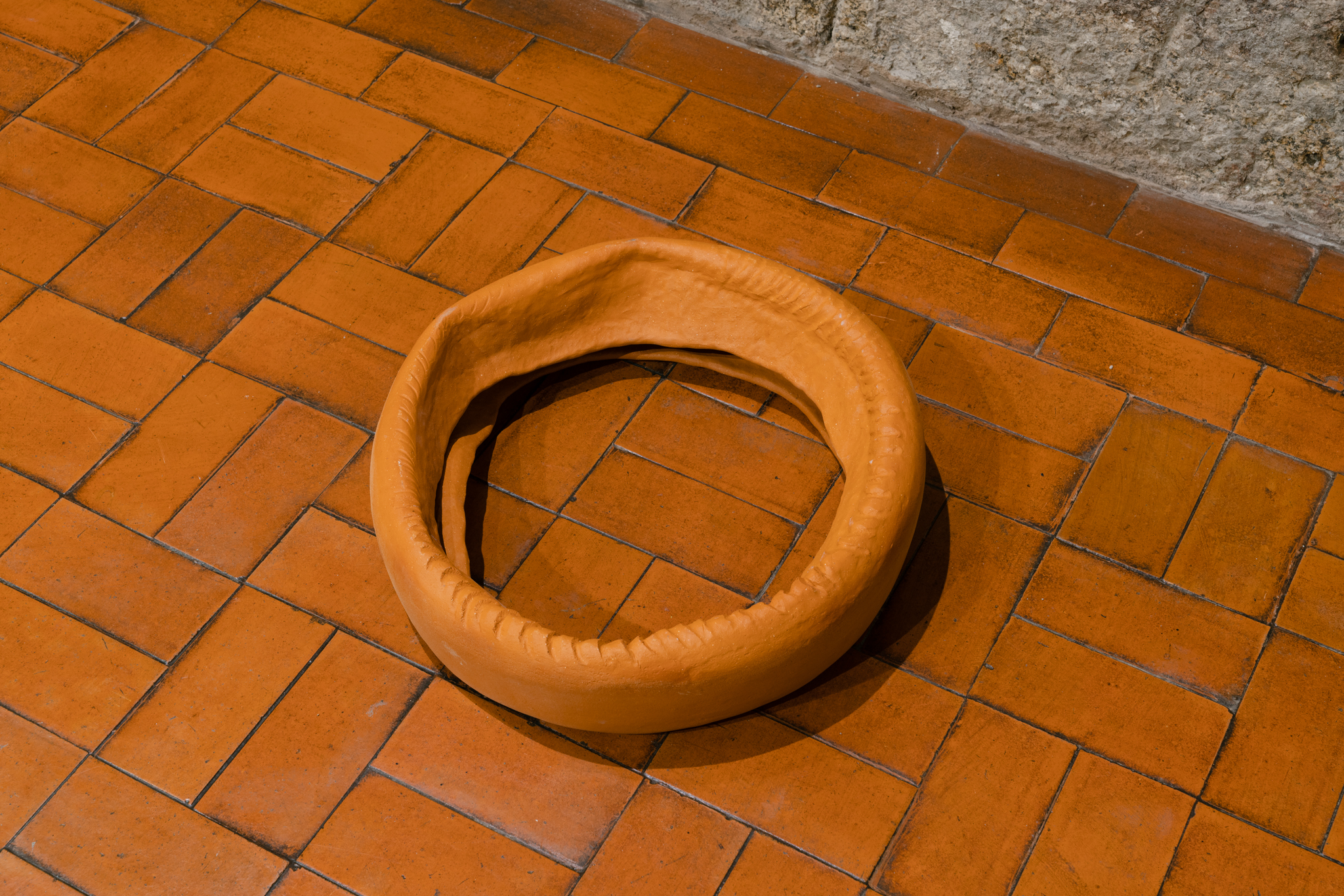
Casca de uma tangerina II, 2023
Ceramics, 59x63x27 cm

untitled, 2023
Polychrome stoneware, 4x51x63 cm

untitled, 2023
Polychrome stoneware, 3x76x55 cm
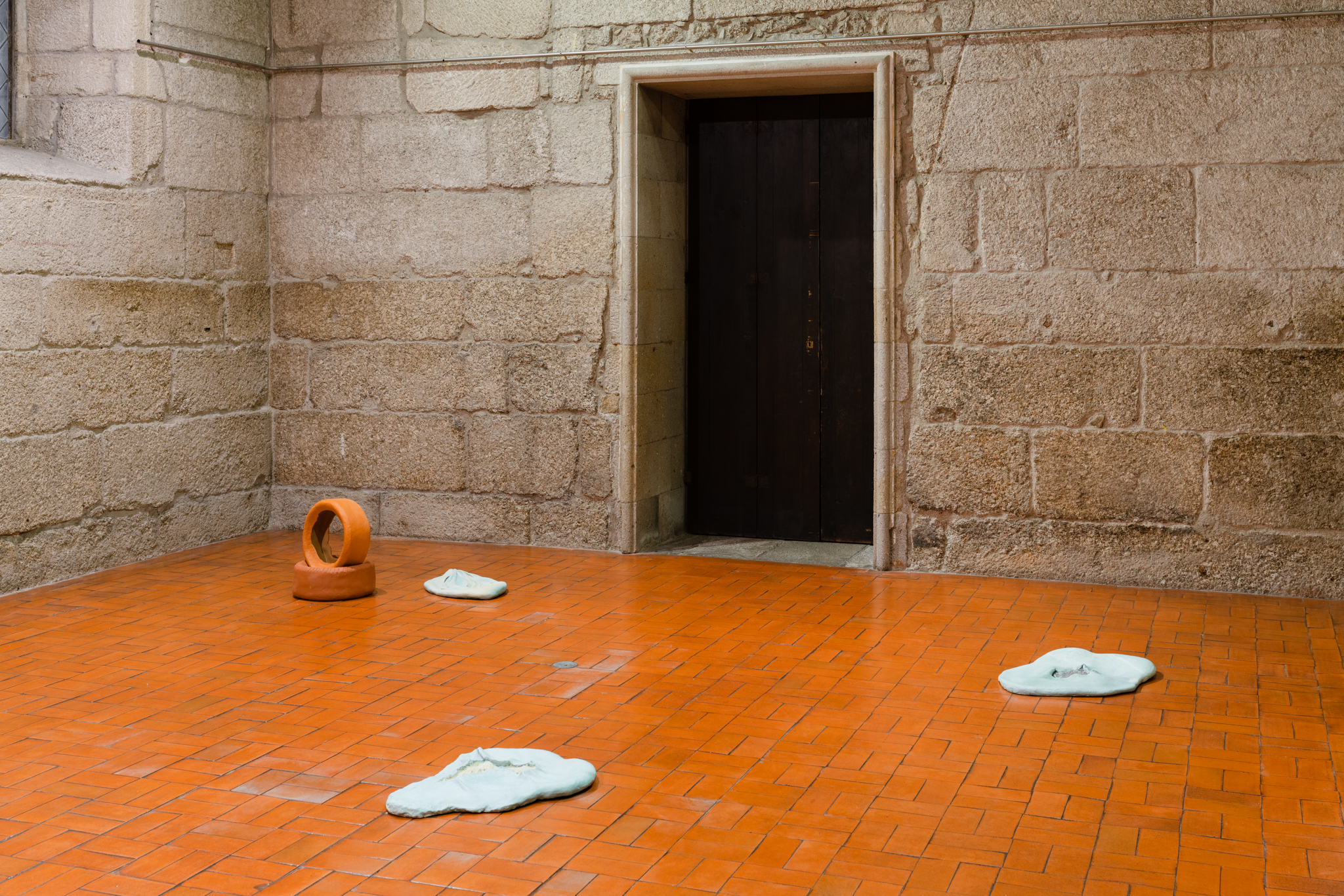

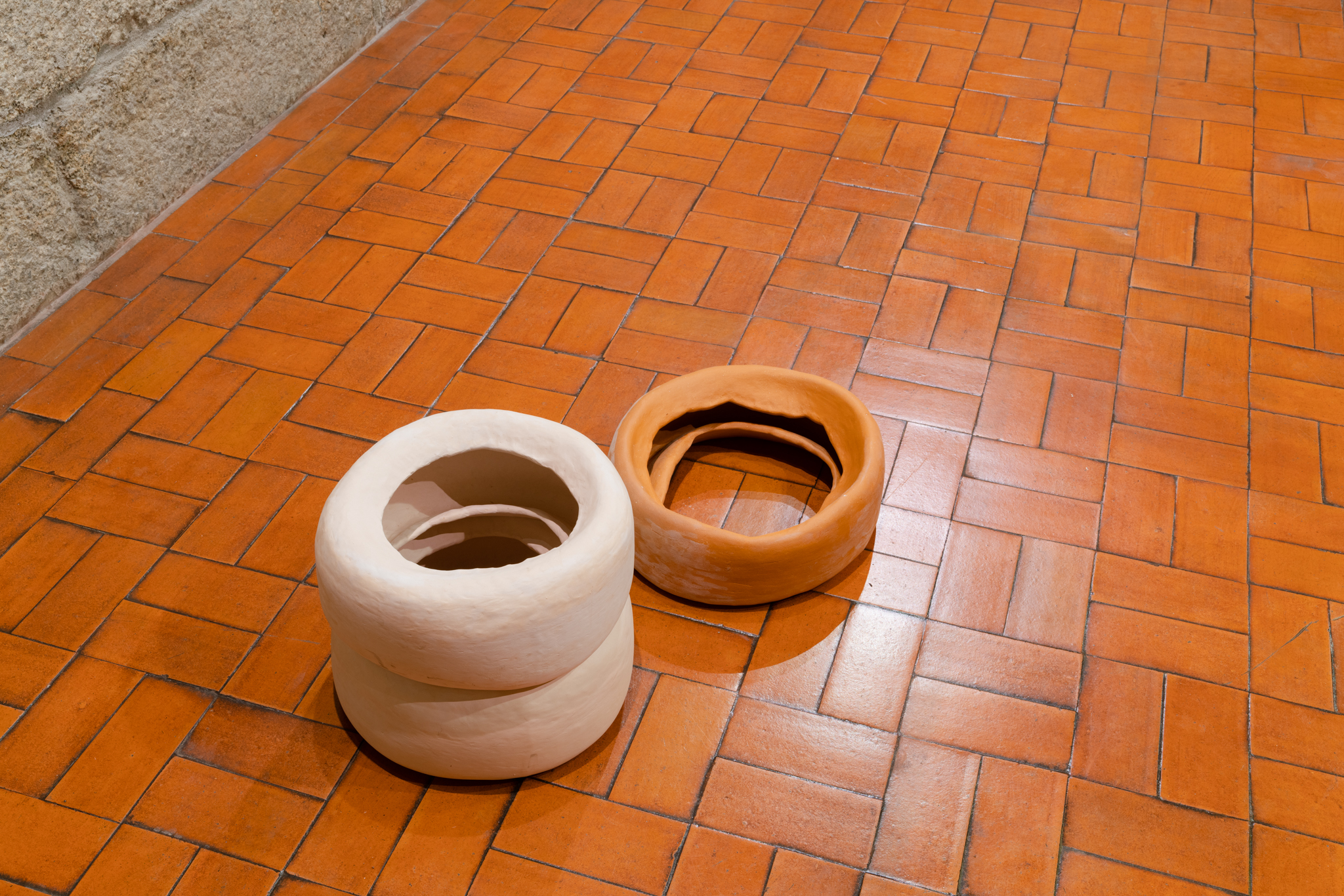
Cascos, 2023
Stoneware, 34,5x40x38 cm
Casca de uma tangerina I, 2023
Ceramics, 16x41x42 cm
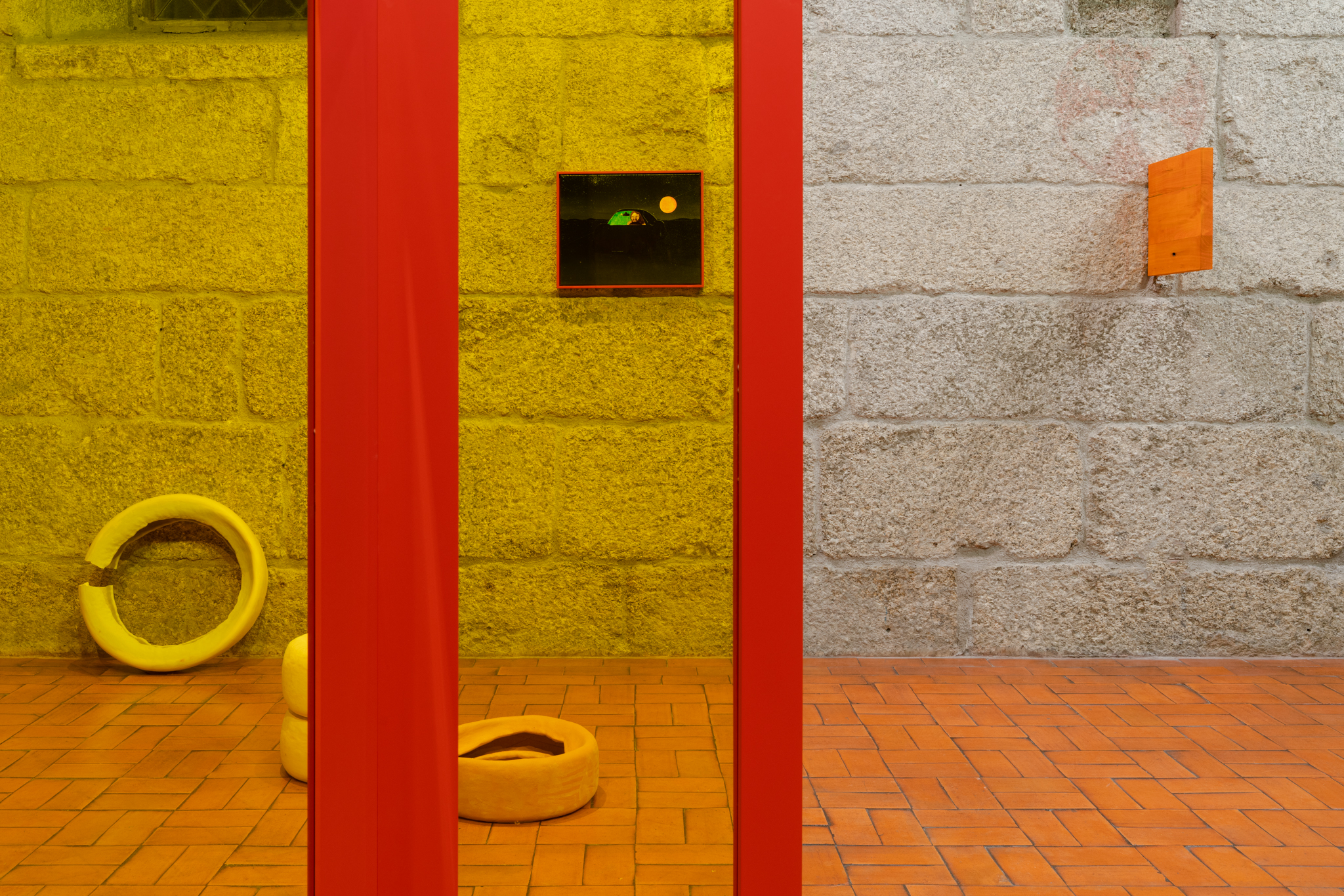
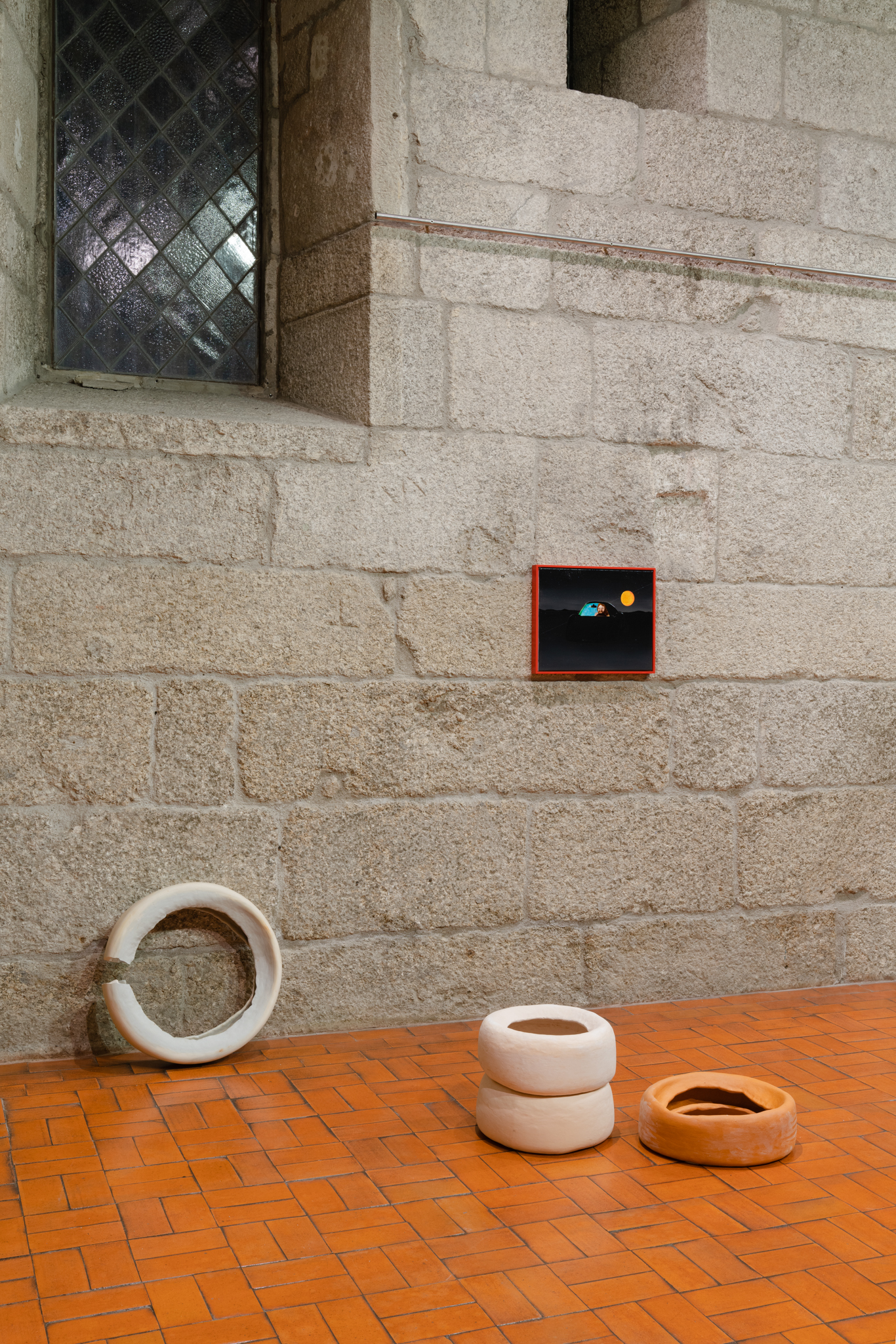
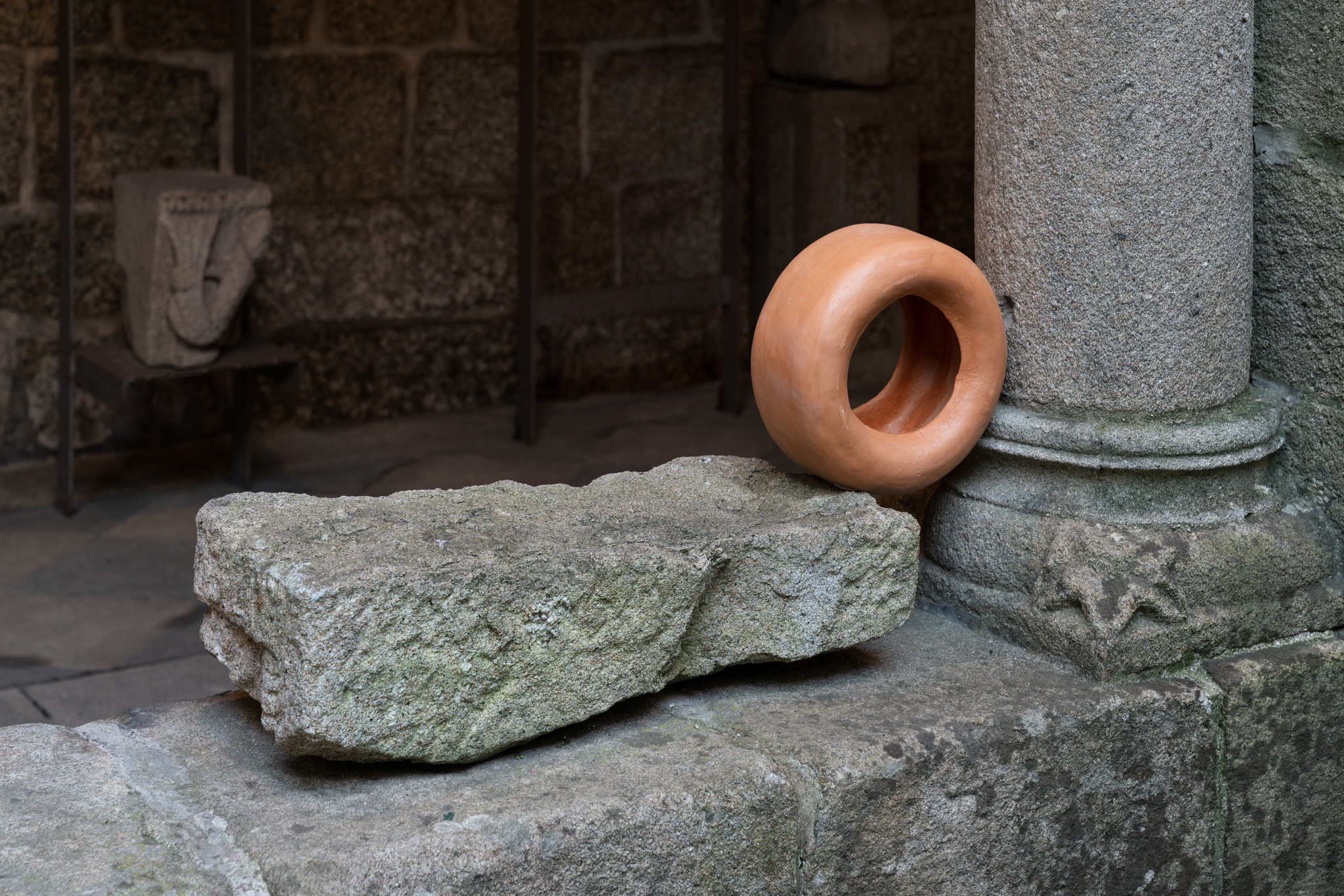 Tyred, 2023
Tyred, 2023Ceramics, 26x26x13 cm
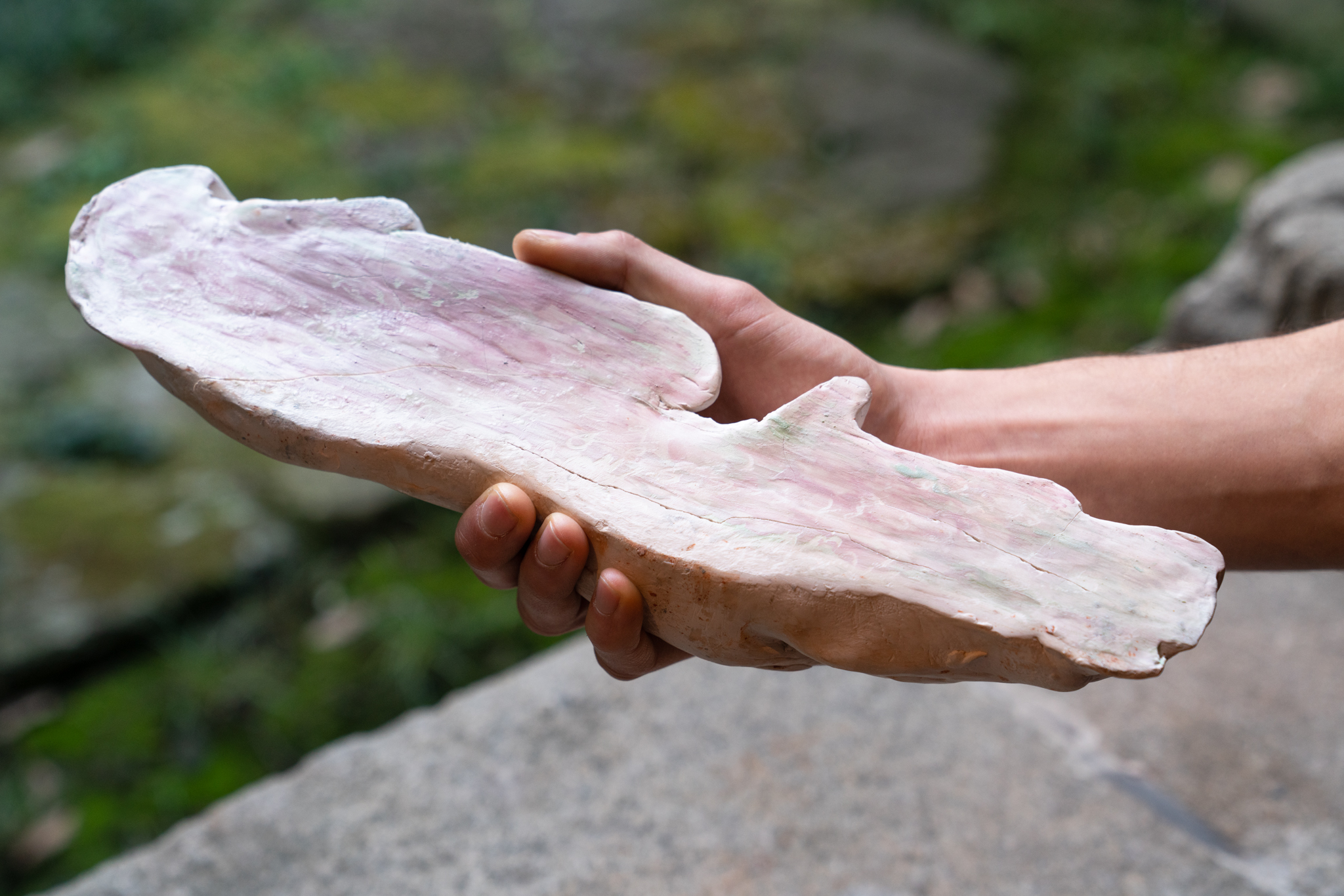
Casca de um árvore, 2023
Polychrome stoneware, 5x9x35,5 cm
Prologue to a proto-appearance, the fatalists.
There are three perfect conditions for fatalism: dream, disbelief, and conformism.
We could also say: childhood, consciousness, and fear. Childhood, a faraway time. Don't
start right now, feel the thing.
The chapterhouse where we are, the present museum, the former monastery, has fallen - a
stone at least - it rose, it had functions, it had silver and gold on its walls, it heard heated
discussions, it had life, lives, it had time.
Half a dozen of shapeless tyres made by Manuel, the screens/windows of Francisco, the
light that shines on them, and a few other fractals in their vicinity. It is not an exhibition, nor
a film, so what we see is a proto-event, perhaps, something that stages what was already
staged, something that condenses the power of an action, something that is spurred to
pass. All works are like this, fatal.
And as a proto-event, we need to leave our body to the attraction and seduction of the
image. Run, feel something. While watching a film and you see images of an ashtray, the
sunset in the distance, and the face looking at you from the side, they are nothing more
than that and yet we are seduced by those images. It takes a long time, sometimes a long,
tiring, unmeasurable period, to reach the pinnacle of a true image. Give it time, it will come.
We tried in this his room, and all the others impregnated with myths, to dodge its destiny,
to lift it, care for it, preserve it. Looking at Fatalists, I remember the strength of ruins, the
images come from our heads.
Interestingly is that we do not to try to justify the veracity, nor the quality nor the
authenticity of the museum, the purity of all this historical heritage; the sublime lies in
questioning all this, lingering in its fatality, embedded in what it was, in our wishes of what
it could have been and from what we can draw with it.
End of a proto-appearance. Duchamp's window and the Fatalists
Marcel Duchamp's Fresh Widow is a window, a window of a house, a French Window.
I have never seen it. The pale blue of the timbers, divided into eight frames, set on a brick
wall. It never opens, but we can see it simultaneously from both sides. We are
simultaneously inside and outside a house.
Each pane, the transparency of the window, is covered with a black leather panel. When we
look through a closed window, we imagine all that we cannot see, even the widow who lives
inside that house.
Even if you have never seen it before, this window, it is what you have just read, a window.
When you're a kid every closed window is a mystery, every tyre is a bank, the air is
imagination, all castles are battles, all places are a truth, never justified, never proven, never
lost.
Now, let's go.
João Terras
︎︎︎Back
Polychrome stoneware, 5x9x35,5 cm
Prologue to a proto-appearance, the fatalists.
There are three perfect conditions for fatalism: dream, disbelief, and conformism.
We could also say: childhood, consciousness, and fear. Childhood, a faraway time. Don't
start right now, feel the thing.
The chapterhouse where we are, the present museum, the former monastery, has fallen - a
stone at least - it rose, it had functions, it had silver and gold on its walls, it heard heated
discussions, it had life, lives, it had time.
Half a dozen of shapeless tyres made by Manuel, the screens/windows of Francisco, the
light that shines on them, and a few other fractals in their vicinity. It is not an exhibition, nor
a film, so what we see is a proto-event, perhaps, something that stages what was already
staged, something that condenses the power of an action, something that is spurred to
pass. All works are like this, fatal.
And as a proto-event, we need to leave our body to the attraction and seduction of the
image. Run, feel something. While watching a film and you see images of an ashtray, the
sunset in the distance, and the face looking at you from the side, they are nothing more
than that and yet we are seduced by those images. It takes a long time, sometimes a long,
tiring, unmeasurable period, to reach the pinnacle of a true image. Give it time, it will come.
We tried in this his room, and all the others impregnated with myths, to dodge its destiny,
to lift it, care for it, preserve it. Looking at Fatalists, I remember the strength of ruins, the
images come from our heads.
Interestingly is that we do not to try to justify the veracity, nor the quality nor the
authenticity of the museum, the purity of all this historical heritage; the sublime lies in
questioning all this, lingering in its fatality, embedded in what it was, in our wishes of what
it could have been and from what we can draw with it.
End of a proto-appearance. Duchamp's window and the Fatalists
Marcel Duchamp's Fresh Widow is a window, a window of a house, a French Window.
I have never seen it. The pale blue of the timbers, divided into eight frames, set on a brick
wall. It never opens, but we can see it simultaneously from both sides. We are
simultaneously inside and outside a house.
Each pane, the transparency of the window, is covered with a black leather panel. When we
look through a closed window, we imagine all that we cannot see, even the widow who lives
inside that house.
Even if you have never seen it before, this window, it is what you have just read, a window.
When you're a kid every closed window is a mystery, every tyre is a bank, the air is
imagination, all castles are battles, all places are a truth, never justified, never proven, never
lost.
Now, let's go.
João Terras
︎︎︎Back